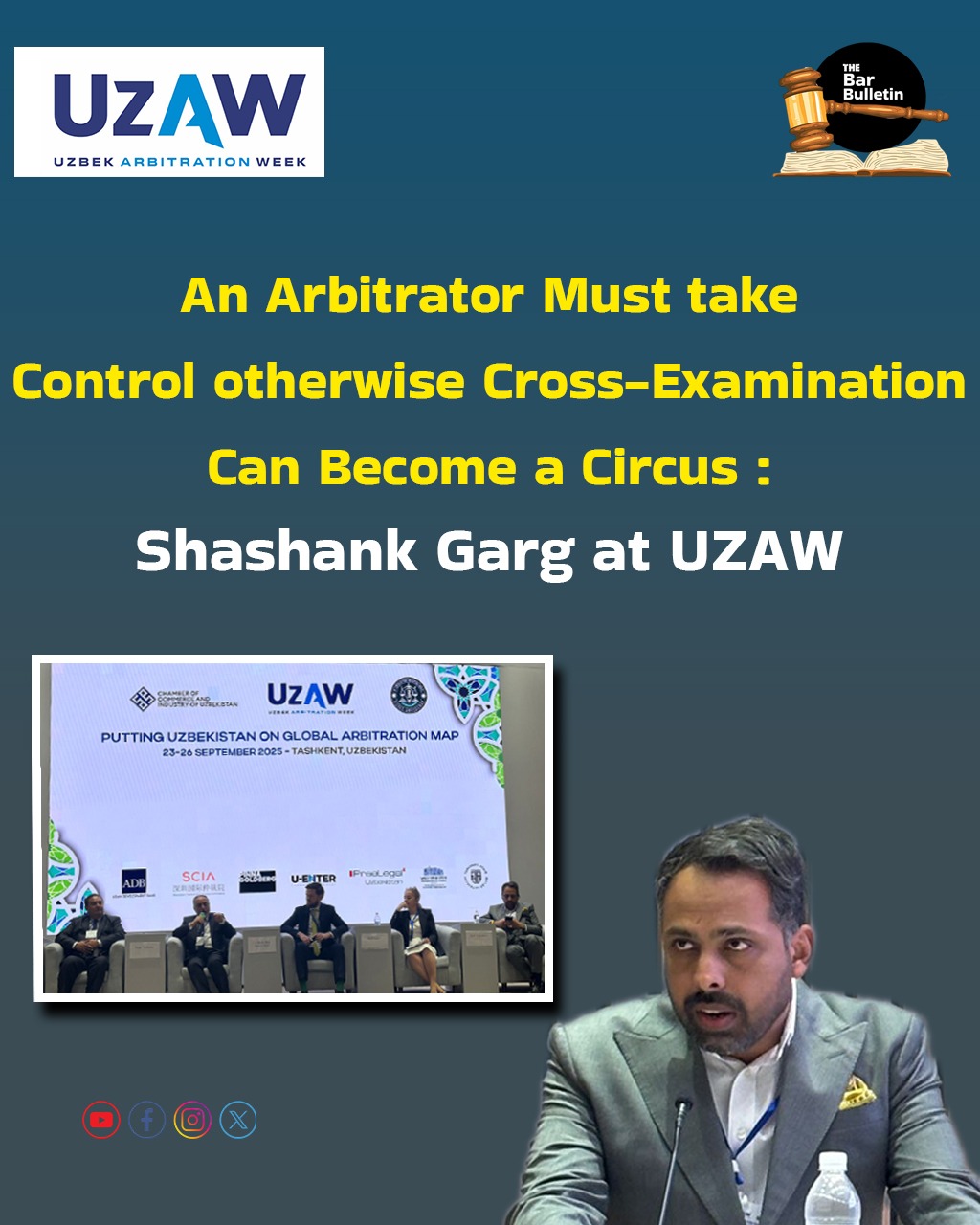Renowned arbitration practitioner Shashank Garg delivered a thought-provoking address at the UZAW 2025 Conference, underscoring the “simple yet critical” role of arbitrators in managing cross-examination during arbitration proceedings.
Speaking to a packed audience of legal professionals, Garg opened by inviting participants to reflect on their own experiences with live cross-examinations and quickly set the tone: “The arbitrator’s primary duty is to control the process and ascertain the truth.”
Through engaging storytelling including an anecdote of Mullah Nasruddin, Garg illustrated the delicate balance required of arbitrators. Unlike the whimsical “you’re right, you’re right” approach of the folk tale, an arbitrator must maintain impartiality while ensuring procedural discipline in ascertaining the truth.
Key points from his address included:
• Importance of Procedure: Mr Garg emphasized the necessity of clear procedural orders at the outset, covering scope and sequence of evidence, rules for questioning, time limits, handling of expert testimony, and the choice between remote or in-person hearings.
• Evolving Practices Post-COVID: Highlighting how virtual hearings have become the norm, he noted that while technology allows for remote cross-examination, “the ethos remains the same, tribunals must observe the witness’s demeanour and credibility.”
• Comparative Frameworks: Mr Garg contrasted the IBA Rules and the more arbitrator-controlled Prague Rules, observing that the latter gives the tribunal discretion to determine whether cross-examination is required at all.
• Flexibility in Questioning: Citing recent English court decisions, he endorsed the view that counsel need not put every paragraph of a witness statement to the witness, provided the procedure is agreed upon from the start.
Mr Garg concluded with a clear message: “The arbitrator must remain firmly in control. Leave it to the counsels, and the entire exercise of cross-examination can quickly resemble a circus.”


One thought on “An Arbitrator Must take Control otherwise Cross-Examination Can Become a Circus: Shashank Garg at UZAW”
Absolutely agree, control is the spine of effective arbitration.
When the arbitrator maintains a firm hand on the proceedings, cross-examination remains focused, disciplined, and purposeful. The moment control slips, advocacy turns into theatre and truth gets lost in the performance.
An arbitrator’s role is not to dominate but to direct-ensuring fairness without surrendering authority. As Mr Garg rightly observed, order and precision are what separate a genuine fact-finding process from a courtroom circus.